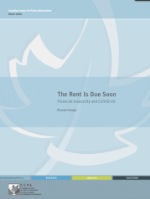Published on Sun, 2020-04-05 12:20
The potential and challenges of the digital economy are emerging steadily on the UN agenda. The UN General Assembly’s Committee on Social, Humanitarian, and Cultural Issues (Third Committee) closed its 74th session in November 2019 adopting over 60 resolutions on a wide range of subjects, only one of which (A/C.3/74/L.11) addressed digital technologies. The Committee heard presentations from a variety of Independent Experts and Special Rapporteurs, two of whom addressed in their reports the human rights implications of emerging digital technologies. The Special Rapporteur on Extreme Poverty and Human Rights, Phillip Alston, focused his report on the digital welfare state. The Special Rapporteur on the Protection of the Right to Freedom of Expression, David Kaye, addressed online hate speech. |
|
Published on Sat, 2020-03-28 00:00
By Roberto Bissio* The message could not have been clearer: "There is a very real threat of a rapidly moving, highly lethal pandemic of a respiratory pathogen killing 50 to 80 million people and wiping out nearly 5% of the world’s economy. A global pandemic on that scale would be catastrophic, creating widespread havoc, instability and insecurity.” This prediction was published in September 2019, several months before the identification of the first Covid-19 patient, by Gro Harlem Bruntland, former Prime Minister of Norway and former Director-General of the World Health Organization (WHO), and by Elhadj As Sy, Secretary General of the International Red Cross and Red Crescent, as co-chairs of the the Global Preparedness Monitoring Board. The Board's report entitled A World at Risk was conclusive: "The world is not prepared." |
Published on Fri, 2020-03-27 10:37
The report by Ricardo Tranjan examines the financial situation of the 3.4 million households in Canada who rent and whose primary source of income is wages and salaries or self-employment income. Everyone will be eventually touched by the economic impacts of the COVID-19 pandemic, but rent is due soon. Specifically, it addresses the following question: How many weeks or months can renters go without employment income before running out of savings? The short answer is that almost half of them have less than a month’s worth of savings; one-third have two weeks or less. |
Published on Fri, 2020-03-27 09:23
Austerity policies pushed by international financial institutions have weakened public health systems, despite current financial support packages, condemning many people to die. As health systems of East Asia, Europe, and the Americas buckle under the strain of coronavirus, developing countries are expecting an even higher human toll. Decades of austerity promoted by international financial institutions (IFIs) such as the International Monetary Fund (IMF), the World Bank, and regional development banks have weakened public health systems, impeding the ability of governments to respond to the pandemic. |
SUSCRIBE TO OUR NEWSLETTER





